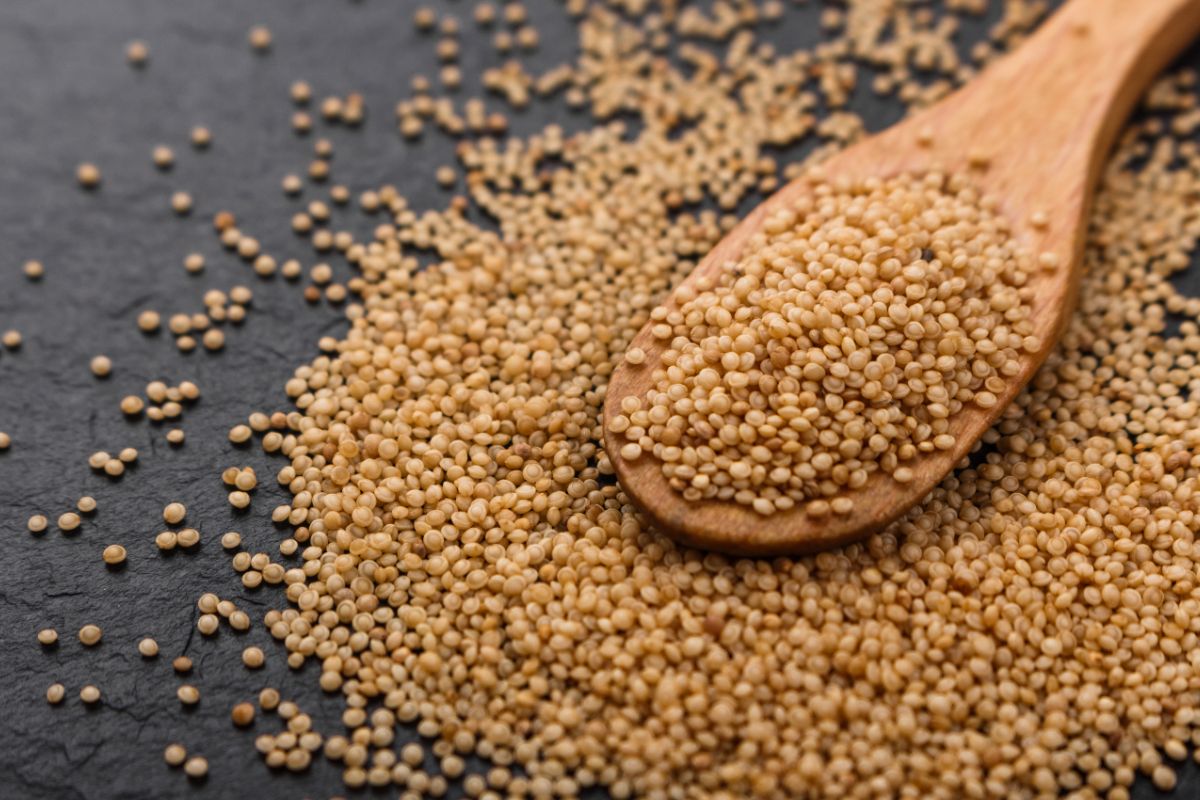It is interesting that while amaranth is an ancient grain which has been used throughout the world for millennia, that it is only now getting the attention it deserves in the health world.
It has been a dietary staple in a variety of different cultures, and a main reason for this is just how nutritious it is and all the benefits which are offered if you eat it often enough.
If you have heard of amaranth, but you have never eaten it, or want to know more about its various health benefits, this article will give you all the information which you are after.
So, if you want some help in researching the health benefits of amaranth, keep reading!
What Actually Is Amaranth?
Amaranth itself is a group which features over 60 different species of grain, and this has been cultivated for more than 8000 years making it one of the oldest dietary staples which is still eaten commonly.
One example of where these grains were used is as a staple of the Inca, as well as Aztec and Mayan civilization, showing just how old these grains are.
Amaranth has also been classified as pseudo-cereal. If you do not know what this means, it infers that while amaranth is not actually a cereal grain, similar to oats or wheat, it is quite similar.
The main way in which amaranth is similar to other cereal grains is that the nutrients it uses are quite similar. Amaranth is well known for its signature flavor as well which is quite nutty and earthy, this makes it work well in a wide variety of different dishes.
This grain is versatile, but also massively nutritious. It is also popular for being gluten free naturally. On top of this it has plenty of protein, micronutrients, fiber, as well as lots of antioxidants.
So, if you are looking for a versatile ingredient to start including in your diet, and you want something which is nutritious as well, you should definitely start working with amaranth!
Amaranth Nutritional Value?
As mentioned in the previous section, amaranth is incredibly nutritious, with the main nutritional factors cited being how it features a lot of protein and is rich in its fiber content.
On top of this, amaranth also has plenty of useful and important micronutrients. Particular examples of this include; magnesium, phosphorus, manganese, as well as iron.
If you want to know the particulars of amaranth’s nutritional value, a single cooked cup of amaranth (weighing 246 grams) has; 251 calories, and contains 9.3 grams of protein. There are 46 grams of carbs, as well as 5.2 grams of fat too.
Manganese is 105% of the RDI, while Magnesium is 40%, Phosphorus is 36%, Iron is 29%, Selenium is 19%, and finally Copper is 18%.
In just one serving of amaranth, you will have more than your daily needs for manganese. A lot of people overlook the nutritional value of manganese, especially since it is so necessary for helping you with your brain’s functions.
Manganese can also help with protecting you against specific neurological conditions which can be harmful.
On top of this, you may have noticed how amaranth contains a fair amount of Magnesium, this is needed for over 300 reactions which are in your body, this includes, DNA synthesis, as well as muscle contraction which is incredibly important.
On top of this amaranth has plenty of phosphorus which is a mineral, this is very important for aiding with your bone health. Amaranth also contains plenty of iron, and iron helps your body in producing blood.
So, if you need to aid with your fiber, manganese, protein, magnesium, iron, or phosphorus levels, amaranth is definitely something you should try to include in your diet.
Amaranth Antioxidants
If you do not know what antioxidants are, these are compounds which are naturally occurring, and they help with protecting you against free radicals in the body.
If you have not heard of free radicals, these can damage your cells, and also can lead to developing a chronic disease.
Because of this need for antioxidants, amaranth is incredibly popular as it helps with antioxidant levels which can help protect you against these diseases.
In a study done on the nutritional value of amaranth, it was found that amaranth contains a high level of phenolic acids, these are plant compounds.
These plant compounds actually act as natural antioxidants, and they contain gallic acid, vanillic acid, as well as p-hydroxybenzoic acid. All of these are often used to protect your body against certain conditions like cancer and heart disease.
There was another study done using amaranth which showed that amaranth also aids with protecting your liver against the effects of alcohol as well.
You will get the highest amount of antioxidants in raw amaranth, so while soaking as well as processing amaranth will often make it easier to eat, it also has a chance of decreasing the antioxidant content of the amaranth.
However, there is still need for further studies on how exactly amaranth and antioxidants affect the human body.
Amaranth Reduces Inflammation

Another useful feature of amaranth is that it aids you with reducing inflammation. If you don’t know why inflammation happens, it is a natural immune response from your body which aids with helping against infections and injuries.
So, while inflammation does help with protecting your body, if you suffer from chronic inflammation, this can actually lead to developing some chronic diseases, with some examples of this being diabetes, cancer, and some autoimmune disorders as well.
Because of this there have been plenty of studies on the anti-inflammatory effects of amaranth and how it affects your body.
There was a test tube study which showed that it reduces markers of inflammation, and an animal study showed that amaranth helps with inhibiting the production of immunoglobulin E, and this is an antibody which leads to allergic inflammation.
However, there does still need to be more research on this specific aspect of amaranth.
Amaranth Lowers Cholesterol Levels
As you likely know, cholesterol is a substance similar to fat which you can find in your body, and if you have too much it will build up in your blood and then this leads to your arteries narrowing.
Because of the negative effects of cholesterol buildup, there has been research done into nutrients which can help combat this, and it has been found that amaranth can help with lowering cholesterol levels.
There was a hamster test which showed that when given amaranth oil, the hamster decreased their bad cholesterol levels significantly, as well as increasing the levels of good cholesterol which is needed in the body.
Chickens were also studied and it was shown that if their diet contained amaranth that they decreased their total cholesterol by 30% and the bad cholesterol levels up to 70%.
Amaranth Aids With Weight Loss
Another reason why amaranth is so popular with health experts is because it aids people with weight loss, so if you are looking to lose some weight, this is a great reason to include amaranth in your diet.
Part of the reason for this is that amaranth contains high levels of both fiber and protein, and both of these are useful in helping with weight loss.
There was a specific study of this which showed that having a protein heavy breakfast, like one which contains amaranth, will decrease your levels of ghrelin.
Ghrelin is a hormone which stimulates your hunger, so amaranth near the beginning of your day will help lower this hunger level.
There was a similar study which showed that people who followed a protein heavy diet were more likely to have a reduced appetite as well as an overall lower calories intake.
As well as the positive effects of the protein content, there is also the fiber content.
This fiber content which is high in the amaranth is what helps it go through your gastrointestinal tract without getting digested, and this helps you feel more full.
There have been studies done on fiber intake with a notable one showing that increasing fiber intake helps with not gaining weight.
Amaranth Is Gluten Free
Part of the reason why a grain like amaranth is so popular is because, unlike a lot of other grains, it does not contain gluten.
For those who are unaware, gluten is a protein which is most commonly found in barley wheat, spelt, and rye.
If you have celiac disease and you eat gluten, you will have an immune response triggered which will hurt your body and inflame your digestive tract. This can lead to plenty of negative effects like feelings of bloating as well as gas and diarrhea.
Because other grains contain gluten, but amaranth does not, this makes it incredibly popular with people who have celiac disease.
Summary
Hopefully this article has shown you just how versatile and useful amaranth can be, so if you think you will benefit from it, try including it in your diet!








